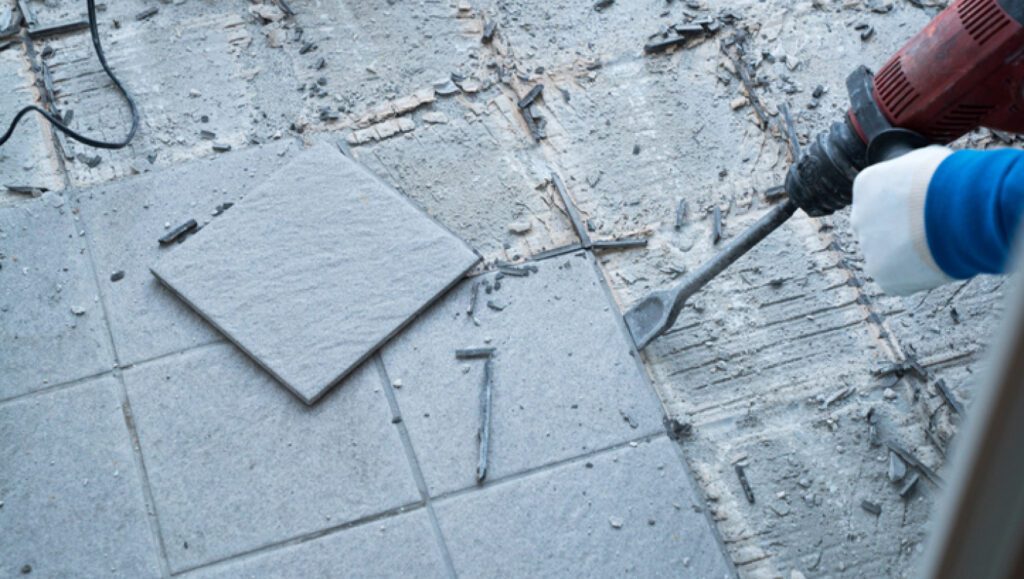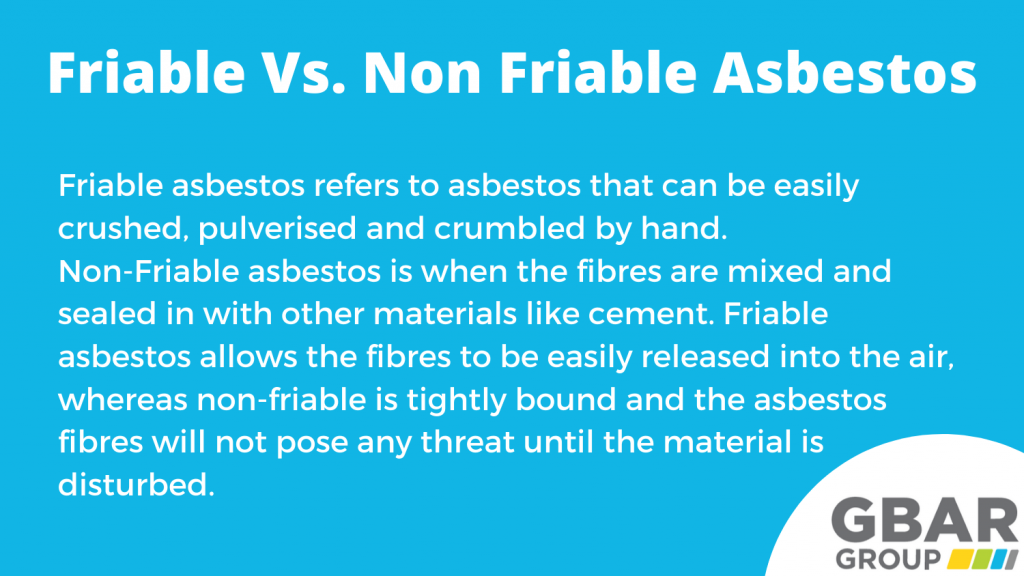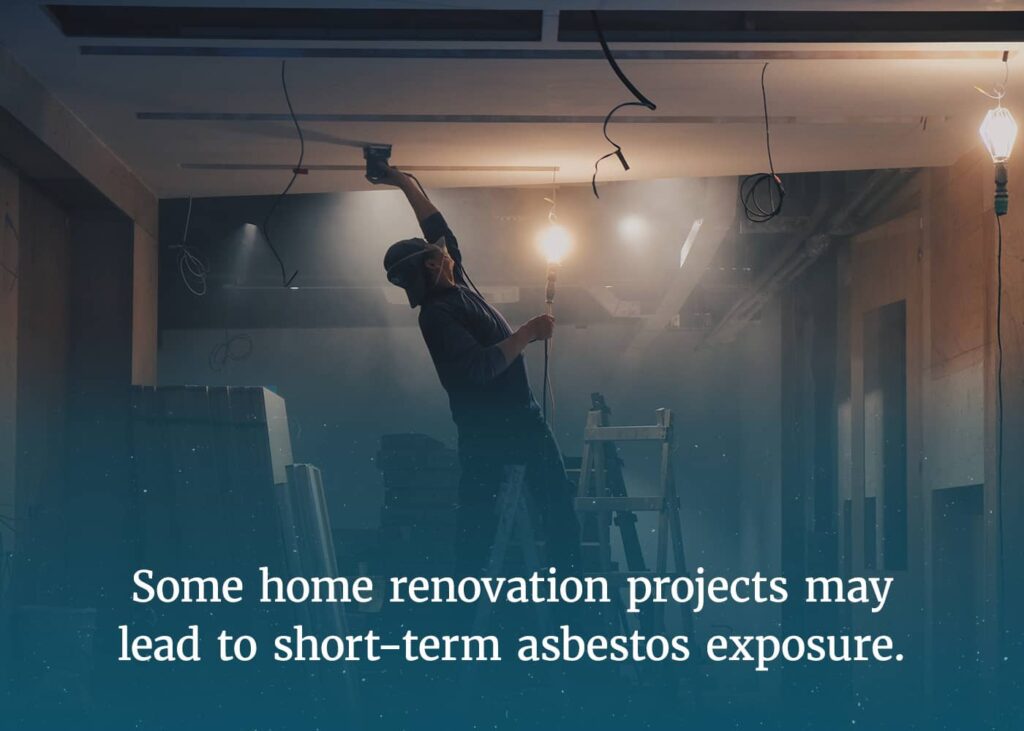Thinking of selling your house in the UK? It’s essential to understand the legal requirements and obligations that come with it, including the disclosure of potential hazards. But what about asbestos? Many homeowners are uncertain if they need to disclose the presence of asbestos when selling their property. In this article, we will clarify the rules and regulations surrounding asbestos disclosure in the UK, providing you with the necessary information to navigate this aspect of the selling process with confidence. Whether you are a homeowner or someone looking to buy a property, understanding the guidelines can help ensure a smooth and transparent transaction.


What is asbestos?
Asbestos is a naturally occurring mineral that was once widely used in building materials due to its fire-resistant and insulating properties. It was often used in homes for roofing, insulation, flooring, and pipes. However, it was later discovered that asbestos fibers can be extremely harmful when inhaled, leading to serious health risks.
Types of asbestos
There are six types of asbestos, classified into two main categories: serpentine and amphibole. Chrysotile, also known as white asbestos, is the only type of serpentine asbestos, while the remaining five types – amosite, crocidolite, tremolite, anthophyllite, and actinolite – fall under the amphibole category. The different types of asbestos have varying degrees of fiber strength and resistance to heat and chemicals.
Health risks associated with asbestos
Exposure to asbestos fibers can cause various health issues, including asbestosis, lung cancer, and mesothelioma. These diseases often have a long latency period, meaning they may take years or even decades to develop after exposure. It is crucial to take precautions to minimize the risk of asbestos exposure to safeguard the health and well-being of individuals residing in asbestos-containing properties.
Common uses of asbestos in houses
In the past, asbestos was installed in numerous areas of houses due to its versatile properties. It was commonly found in roofing materials, insulation (such as around pipes and boilers), floor tiles, textured coatings, cement products, and even some decorative features. It is important to be aware of these potential sources of asbestos when buying or selling a property in the UK.
Requirements for selling a house in the UK
When selling a house in the UK, there are certain legal obligations that sellers must fulfill to ensure a fair and transparent transaction. Understanding these requirements and the role of estate agents can help sellers navigate the process smoothly.
Seller’s legal obligations
As a seller, you have a legal duty to disclose any material information about the property to potential buyers. This includes information about the presence of asbestos or any known asbestos-containing materials (ACMs) in the property. Failure to disclose this information may not only lead to legal consequences but also put the health of the buyer at risk.
Role of estate agents
Estate agents play a crucial role in facilitating the sale of a property. They are responsible for marketing the property, arranging viewings, and negotiating with potential buyers. It is important to communicate openly with your estate agent about any asbestos-related information or concerns to ensure they are able to represent your interests effectively.
Importance of a Homebuyer’s Report
A Homebuyer’s Report is a detailed survey conducted by a qualified surveyor to assess the condition of the property. While it is not mandatory, obtaining a Homebuyer’s Report can provide valuable information about the presence of asbestos and other potential issues in the property. This report can help both the seller and the buyer make informed decisions and ensure a smooth transaction.


Asbestos and property disclosure
Disclosing the presence of asbestos in a property is not just a legal obligation; it is also an ethical responsibility. Transparent disclosure helps potential buyers assess the risks associated with the property, make informed decisions, and take necessary precautions to protect themselves and their families.
The duty to disclose
Sellers have a legal duty to disclose any known defects or issues that could affect the value or desirability of the property. This duty includes disclosing the presence of asbestos or ACMs. Failing to provide this information can lead to legal consequences, such as claims for misrepresentation or negligence.
Defining ‘latent defects’
Latent defects refer to defects that are not immediately apparent and might not be discovered during a standard inspection or survey. Asbestos is often considered a latent defect, as it may be hidden behind walls, ceilings, or other areas not easily accessible. It is crucial to disclose such defects to potential buyers to ensure transparency and protect their interests.
Cases where disclosure is not required
There are certain situations where the duty to disclose asbestos may not apply. For example, if you genuinely have no knowledge of the presence of asbestos in your property, you may not be held accountable for non-disclosure. However, it is always advisable to conduct thorough surveys and consult professionals to ensure you are aware of any potential asbestos-related issues.
Checking and managing asbestos in your property
To ensure the safety of occupants and comply with legal obligations, it is essential to check and manage asbestos in your property. Consulting a licensed asbestos professional, conducting asbestos surveys, and managing any identified ACMs appropriately are crucial steps in this process.
Consulting a licensed asbestos professional
When dealing with asbestos-related concerns, it is essential to seek professional advice from licensed asbestos professionals. These experts have the knowledge, skills, and equipment to assess, test, and manage asbestos safely. They can guide you through the process of identifying and mitigating asbestos risks in your property.
Asbestos survey types
There are two main types of asbestos surveys: management surveys and refurbishment/demolition surveys. A management survey is conducted to identify the presence and condition of ACMs that could be disturbed during normal occupancy or maintenance activities. A refurbishment/demolition survey is more comprehensive and is required when there are significant refurbishment or demolition works planned.
Dealing with asbestos-containing materials (ACMs)
If an asbestos survey identifies ACMs, it is important to manage them appropriately to minimize the risk of exposure. Depending on the condition and location of the ACMs, options for management may include encapsulation, removal, or ongoing monitoring. It is crucial to engage qualified asbestos professionals to handle these tasks safely and effectively.


Consequences of non-disclosure
Failing to disclose the presence of asbestos in your property can have serious consequences, both legally and in terms of the sale process. Understanding these implications can help you make informed decisions and avoid potential liability or financial setbacks.
Legal implications for sellers
Non-disclosure of asbestos can lead to legal consequences, such as claims for misrepresentation or negligence. Buyers may seek compensation for any harm or financial losses suffered due to non-disclosure. It is crucial to understand your legal obligations and act in accordance with them to avoid potential legal disputes.
Impact on the sale process
Non-disclosure of asbestos can significantly impact the sale process. Potential buyers who discover asbestos in the property may either withdraw their offer or renegotiate the price to account for the cost of asbestos management or removal. This can cause delays, additional expenses, and even the collapse of the sale if an agreement cannot be reached.
Liability and compensation
If a buyer is harmed due to exposure to undisclosed asbestos, the seller may be held liable for any resulting damages. This can include compensation for medical expenses, loss of earnings, and other associated costs. By fulfilling your duty to disclose, you can mitigate the risk of liability and ensure a fair and transparent transaction.
Asbestos removal and property value
The presence of asbestos in a property can have implications for its value and insurability. Understanding these factors and exploring the available options for asbestos removal can help sellers make informed decisions to protect their investment and facilitate a successful sale.
Factors affecting property value
The presence of asbestos can negatively affect the value of a property. Potential buyers may perceive it as a significant health and safety risk, leading to lower offers or negotiations on the asking price. However, taking appropriate measures to manage or remove asbestos can help mitigate the impact on property value.
Options for asbestos removal
If asbestos is present in your property, you have a few options for its removal. You can choose to have the asbestos professionally removed by licensed contractors, which can be costly but ensures thorough removal and peace of mind for potential buyers. Alternatively, you may opt for encapsulation or ongoing monitoring, depending on the condition and accessibility of the ACMs.
Implications for property insurance
The presence of asbestos can also affect property insurance. Some insurers may refuse coverage or impose higher premiums for properties with asbestos. It is important to inform your insurance provider about the presence of asbestos, as non-disclosure can invalidate your coverage. Exploring insurance options specifically tailored to asbestos-containing properties may be advisable.


Special considerations for older properties
Older properties are more likely to contain asbestos due to its historical use in construction. If you own or are considering buying an older property, it is important to be aware of the unique considerations and precautions associated with managing asbestos in these buildings.
Age and likelihood of asbestos presence
The age of a property is often a good indicator of its likelihood of containing asbestos. Buildings constructed before the year 2000 are more likely to have asbestos-containing materials. This knowledge can help you prioritize and plan asbestos surveys and management activities accordingly.
Period features and asbestos
Some older properties may have period features that contain asbestos. For example, decorative textured coatings such as Artex used in ceilings or walls may contain asbestos. It is important to identify and manage these features appropriately to prevent exposure and ensure compliance with legal obligations.
Guidelines for renovations and refurbishments
Older properties often require renovations or refurbishments to meet modern standards or personal preferences. When undertaking such projects in a property known to contain asbestos, it is crucial to follow guidelines for safe asbestos management. This may involve engaging licensed asbestos professionals, conducting surveys, and implementing appropriate control measures to protect workers and occupants.
Responsibilities of buyers
Buyers also have important responsibilities when it comes to asbestos and property transactions. Conducting thorough property inspections, engaging in discussions with the seller, and seeking professional advice can help buyers make informed decisions and ensure their safety.
Conducting thorough property inspections
As a buyer, it is essential to conduct thorough inspections of the property you are considering purchasing. This includes obtaining a Homebuyer’s Report, where possible, to identify any potential asbestos-related issues. It is also advisable to engage professionals to conduct specific surveys or inspections if you have concerns about asbestos.
Discussions with the seller
Open and transparent communication with the seller is crucial during the property buying process. It is important to ask questions about the presence of asbestos and any known ACMs, as well as any actions taken to manage or remove them. This information will help you make an informed decision and understand the potential risks associated with the property.
Seeking professional advice
If you have any doubts, concerns, or questions about asbestos in a property, it is important to seek professional advice. Licensed asbestos professionals, surveyors, or solicitors experienced in property transactions can provide valuable insights and guidance to ensure you make the right decisions to protect your interests and safety.


Regulations and guidance
Various regulations and guidance exist in the UK to ensure the safe management and handling of asbestos. Familiarizing yourself with these requirements can help you navigate the process more effectively and ensure compliance.
Control of Asbestos Regulations 2012
The Control of Asbestos Regulations 2012 sets out the legal requirements for managing asbestos in non-domestic premises, including common areas of residential buildings, like blocks of flats. It imposes a duty to manage asbestos and provides guidelines on conducting surveys, assessing risks, and implementing appropriate control measures.
Health and Safety Executive (HSE) guidelines
The Health and Safety Executive (HSE) provides comprehensive guidance on asbestos management and handling. They offer detailed information on conducting surveys, assessing risks, implementing control measures, and engaging licensed asbestos professionals. Familiarizing yourself with the HSE guidelines can help you understand best practices and ensure compliance with legal obligations.
Local authority requirements
In addition to national regulations, local authorities may have specific requirements concerning asbestos management. It is important to research and comply with any additional obligations that may apply to your area. Local authorities can provide information and resources to support you in managing asbestos in your property effectively.
Conclusion
Disclosing the presence of asbestos when selling a house in the UK is essential for ensuring a fair, transparent, and safe transaction. Understanding the legal obligations and the potential health risks associated with asbestos is crucial for both sellers and buyers. By following the guidelines, seeking professional advice, and taking appropriate measures to manage or remove asbestos, you can protect your interests, safeguard the health of occupants, and facilitate successful property transactions. Remember, compliance with legal obligations and transparent communication are key to a successful and ethical property transaction.







